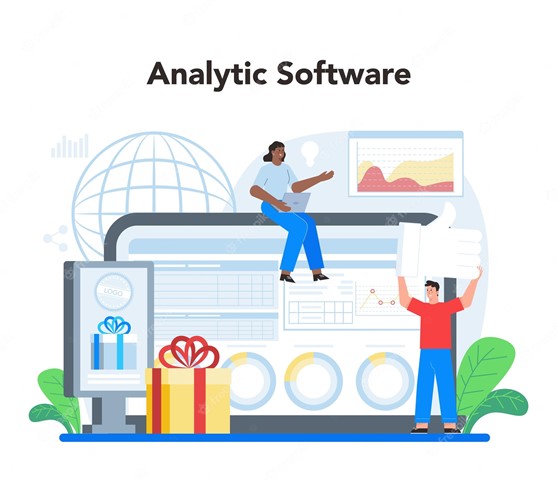As businesses grow and evolve, it becomes increasingly important to streamline processes and optimize operations. One way to achieve this is through the development of custom APIs, or application programming interfaces. APIs are a set of protocols and tools used to build software applications and allow different systems to communicate with each other.
In this article, we will explore the benefits of custom API development for businesses, the API development process, how to identify the need for custom API development, steps to streamline business processes with custom API development, choosing the right API development team, best practices for custom API development, common challenges in API development and how to overcome them, and examples of successful custom API development implementations.

Introduction to API Development and Custom API Development
An API is a set of protocols, routines, and tools used to build software applications. APIs allow different software systems to communicate with each other, enabling businesses to streamline their operations and improve efficiency.
Custom API development refers to the creation of APIs specifically designed for a business’s unique needs. These APIs can be used to automate processes, integrate systems, and improve productivity.
Benefits of Custom API Development for Businesses
Custom API development offers several benefits to businesses. Here are a few:
Increased Efficiency
Custom APIs can automate repetitive tasks, reducing the time and effort required to complete them. This automation can help businesses increase efficiency and productivity.
Improved Communication
Custom APIs can facilitate communication between different systems, enabling businesses to share data and information more easily. This can help break down data silos and improve collaboration.
Cost Savings
Custom APIs can automate processes that would otherwise require manual labor, reducing labor costs and increasing profitability.
Scalability
Custom APIs can be designed to scale with a business’s growth. This means that as a business grows, its API can be expanded to accommodate additional systems and processes.
Understanding the API Development Process

The API development process typically involves several stages, including planning, design, development, testing, and deployment. Here is a brief overview of each stage:
Planning
In the planning stage, the API development team works with the business to identify its needs and goals. This involves understanding the business’s processes, systems, and data requirements.
Design
In the design stage, the API development team creates a blueprint for the API. This includes defining the API’s functions, endpoints, and data types.
Development
In the development stage, the API development team builds the API. This involves writing code, integrating systems, and testing the API’s functionality.
Testing
In the testing stage, the API development team tests the API to ensure that it is functioning correctly. This involves testing for bugs, security vulnerabilities, and performance issues.
Deployment
In the deployment stage, the API is deployed to the business’s systems. This involves configuring the API to work with the business’s existing systems and processes.
How to Identify the Need for Custom API Development
To identify the need for custom API development, businesses should ask themselves the following questions:
Are there manual processes that could be automated?
Custom APIs can automate repetitive tasks, reducing the time and effort required to complete them.
Is there a need to integrate different systems?
Custom APIs can facilitate communication between different systems, enabling businesses to share data and information more easily.
Is there a need to improve efficiency?
Custom APIs can improve efficiency by automating processes that would otherwise require manual labor.
Is there a need to improve collaboration?
Custom APIs can break down data silos and improve collaboration by facilitating communication between different systems.
Steps to Streamline Business Processes with Custom API Development

To streamline business processes with custom API development, businesses should follow these steps:
Identify business processes that can be automated
The first step is to identify business processes that can be automated. This involves analyzing existing processes and identifying areas where automation can improve efficiency.
Define API requirements
Once business processes have been identified, the next step is to define the requirements for the custom API. This involves determining the API’s functions, endpoints, and data types.
Develop the API
The API development team can then begin developing the custom API. This involves writing code, integrating systems, and testing the API’s functionality.
Test the API
Once the API has been developed, it should be tested to ensure that it is functioning correctly. This involves testing for bugs, security vulnerabilities, and performance issues.
Deploy the API
The API can then be deployed to the business’s systems. This involves configuring the API to work with the business’s existing systems and processes.
Choosing the Right API Development Team
Choosing the right API development team is crucial to the success of a custom API development project. Here are a few things to consider when choosing an API development team:
Experience
Look for an API development team with experience in developing custom APIs. This experience should include working with businesses similar to yours.
Technical expertise
The API development team should have technical expertise in the programming languages and databases required for your custom API.
Communication skills
The API development team should have strong communication skills to ensure that they understand your business’s needs and goals.
Project management skills
The API development team should have strong project management skills to ensure that the project is completed on time and within budget.
Best Practices for Custom API Development
Here are a few best practices for custom API development:
Start with a plan
Before beginning development, create a plan that outlines the API’s functions, endpoints, and data types.
Use a consistent naming convention
Use a consistent naming convention for endpoints and data types to make the API easier to use and maintain.
Use version control
Use version control to keep track of changes to the API’s code.
Document the API
Document the API to make it easier for developers to use and maintain.
Common Challenges in API Development and How to Overcome Them

Here are a few common challenges in API development and how to overcome them:
Security vulnerabilities
APIs can be vulnerable to security threats, such as SQL injection attacks. To overcome this, ensure that the API is properly secured and use authentication and authorization mechanisms.
Performance issues
APIs can experience performance issues if they are not optimized for speed. To overcome this, optimize the API’s code and use caching mechanisms.
Compatibility issues
APIs can experience compatibility issues if they are not designed to work with different systems and technologies. To overcome this, ensure that the API is designed to work with a wide range of systems and technologies.
Examples of Successful Custom API Development Implementations
Here are a few examples of successful custom API development implementations:
Salesforce API
Salesforce’s API allows businesses to integrate their Salesforce data with other systems, such as marketing automation platforms and customer service software.
Shopify API
Shopify’s API allows businesses to integrate their Shopify store with other systems, such as accounting software and shipping software.
Twilio API
Twilio’s API allows businesses to add messaging and voice capabilities to their applications, such as sending SMS messages and making phone calls.
Conclusion: The Future of Custom API Development for Businesses
Custom API development offers several benefits to businesses, including increased efficiency, improved communication, cost savings, and scalability. As businesses continue to grow and evolve, custom API development will become increasingly important for streamlining processes and optimizing operations. By following best practices and working with an experienced API development team, businesses can successfully implement custom APIs and improve their operations.
